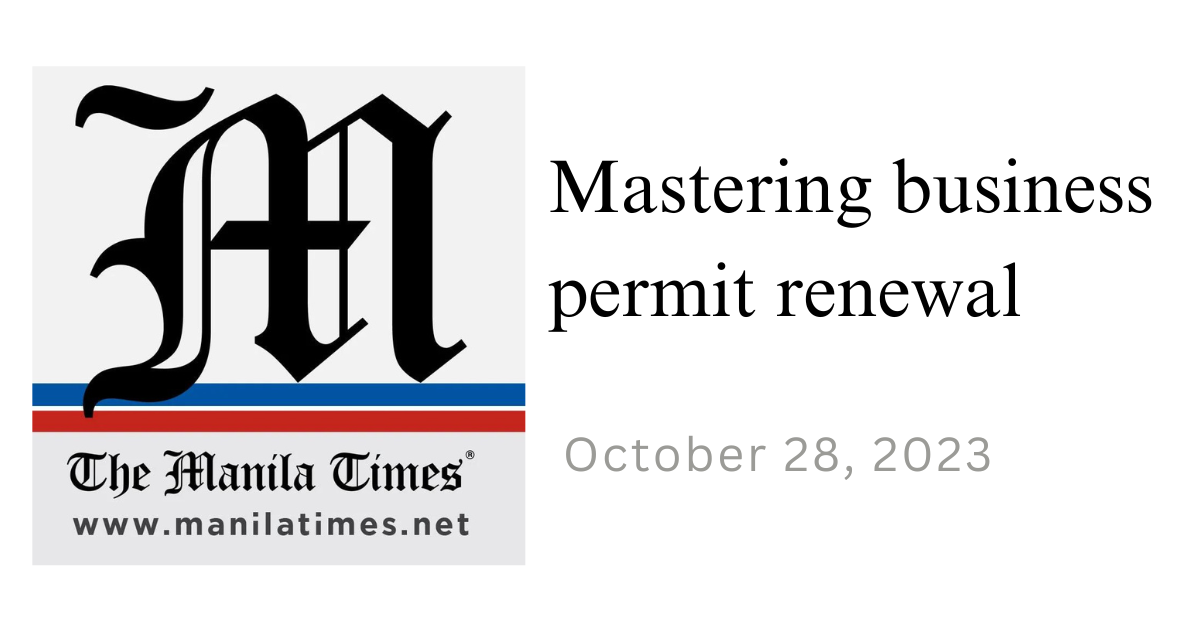As we approach the conclusion of 2023, amidst the hustle and bustle of year-end activities, one crucial matter often overlooked by business proprietors is the onset of the business permit renewal season. While registering is the first and most important step, renewing your permits is essential since it allows you to operate legally. It ensures you comply with all requirements, such as paying taxes and following health and safety standards. You wouldn’t want to eat in a restaurant that doesn’t have an updated sanitation permit, right?
The deadline for business permit renewal typically falls on January 20, and avoiding a last-minute rush to fulfill this requirement in the new year is highly advisable. Permitly Philippines, a partner in business registration and compliance, suggests initiating the renewal process as early as November. This strategic approach allows entrepreneurs to relish the holiday season while ensuring compliance with local governmental stipulations.
Not sure where to start? Here is a quick guide.
Who Must Renew Their Business Permit?
Every entity, whether a freelancer, sole proprietorship, or a corporation, must undergo annual permit renewal.
When is the Permit Renewal Deadline?
Traditionally, the window for renewal spans from the 1st to the 20th of January each calendar year.
What Are the Required Steps?
The first order of business involves assembling all necessary documents. Remember that prerequisites may vary depending on the specific LGU, so consulting their official website is advisable. However, common requisites include the prior Barangay Clearance, Official Receipt of the Barangay Clearance, Application Forms, Previous Business Permit, Tax Certificate, Lease Contract, Sanitary Permit, Fire Safety Inspection Certificate, Comprehensive General Liability Insurance, and an Audited Financial Statement from the preceding year. Depending on your LGU, you may also be required to furnish additional documents, such as Social Security System (SSS), Home Development Mutual Fund (PAG-IBIG), and Philippine Health Insurance Corporation (PhilHealth) records, list of employees (or affidavit of no employee), residential address, or an Affidavit of No Operations if the business remained dormant in the previous year. Other potential requirements include a Certificate of Gross Receipt Sales for the previous fiscal year OR Affidavit of No Income, whichever is applicable, VAT Returns, AFS, and Quarterly ITR (BIR Form 1702Q), if applicable.
Once all prerequisites and documents are in order, visit your local Barangay Hall to submit your renewal application and settle the requisite fee. Subsequently, expect to be instructed to return on a designated date to retrieve your renewed Barangay Clearance. Simultaneously, proceed to your City Hall to present your documents for assessment, with an additional fee involved. You will then receive a receipt, which must be retained for subsequent visits to acquire your renewed business permit.
Though the annual practice of complying with these requirements may appear cumbersome, it is indispensable for averting potential legal complications. The government imposes penalties on businesses that neglect or postpone renewals. Furthermore, maintaining up-to-date permits enhances the company’s credibility, simplifying interactions with customers and prospective partners who perceive the enterprise as dependable and trustworthy.



